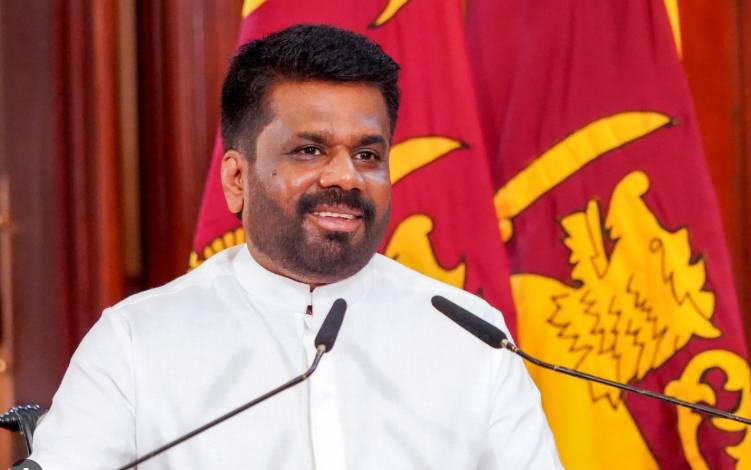Sri Lanka's new leader sticks within IMF 'guardrails'

Stay tuned with 24 News HD Android App

Sri Lanka's new leftist government has agreed to press ahead with a controversial IMF bailout programme that involves tough austerity and economic reforms, the international lender announced Saturday.
The International Monetary Fund said it reached an agreement with President Anura Kumara Dissanayake's administration to continue with the four-year loan negotiated by his predecessor last year.
"The authorities have committed to stay within the guardrails of the programme," IMF team leader Peter Breuer told reporters at the end of talks with the new government.
He said the new government's commitment ensured policy continuity.
"Sustaining the reform momentum is critical to safeguarding the hard-won gains of the programme, and putting the economy on a path towards lasting recovery and stable and inclusive growth," Breuer added.
Sri Lanka went to the IMF for a rescue package after the country defaulted on its $46 billion external debt in April 2022 during an unprecedented economic meltdown.
The shortage of foreign exchange, which left the country unable to finance even the most essential imports of food and fuel, led to months of street protests and forced then-president Gotabaya Rajapaksa to resign.
The $2.9 billion loan secured early last year required Colombo to sharply raise taxes, remove generous energy subsidies and agree to restructure more than 50 loss-making state enterprises.
Dissanayake's predecessor Ranil Wickremesinghe secured the rescue that involves the disbursement of a $2.9 billion loan over four years.
In his first address to parliament after his National People's Power party won a landslide at the November 14 election, Dissanayake backed the IMF deal on Thursday, marking a U-turn from his election pledge.
The dissatisfaction with traditional politicians held responsible for the economic collapse was a key driver of Dissanayake's electoral success.
Dissanayake said there was no room to make any mistakes in managing the economy.
According to Breuer, the new government's pledge to fight corruption will "reinvigorate governance reforms", rebuild economic confidence, and make growth more robust and inclusive.
Sri Lanka will now be able to draw down $333 million, subject to IMF board approval, by the end of the year.
Last month, Dissanayake's interim cabinet signed off on a controversial restructuring of $14.7 billion in foreign commercial credit tentatively agreed by Wickremesinghe.
The debt restructuring is a key IMF demand to rebuild the island's economy, which shrank 7.8 percent in 2022, its worst performance ever.
